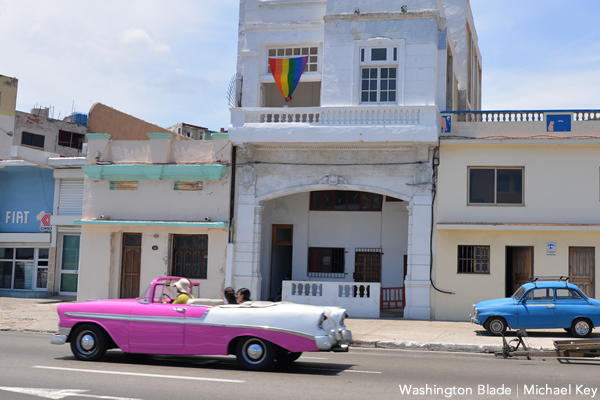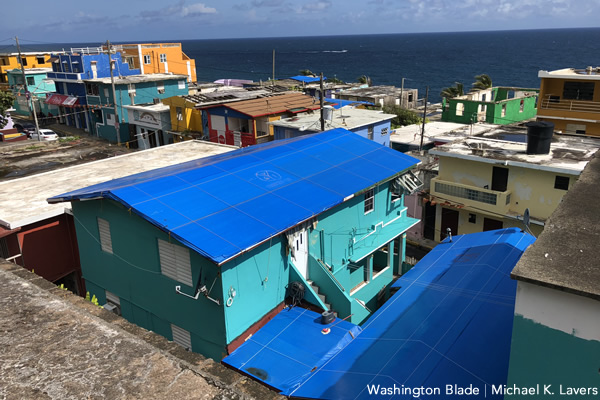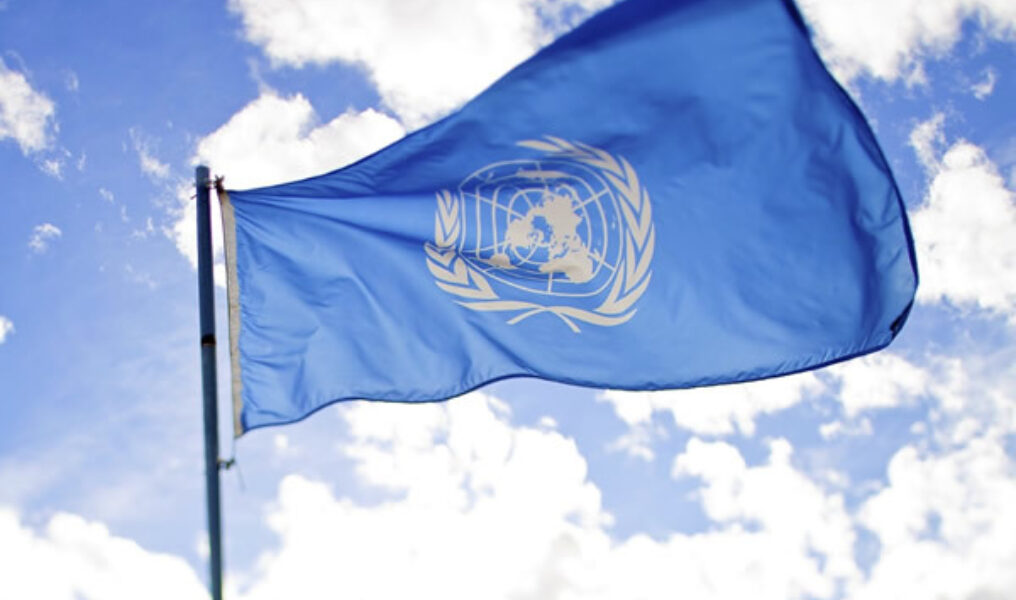The U.S. on Tuesday announced it has withdrawn from the U.N. Human Rights Council.
U.S. Ambassador to the U.N. Nikki Haley told reporters during a press conference at the State Department that Cuba, Venezuela, China, the Democratic Republic of Congo and other countries "with unambiguous and abhorrent human rights records" are members of the council. She also accused the council of having a "chronic bias against" Israel.
"America has a proud legacy as a champion of human rights, a proud legacy as the world's largest provider of humanitarian aid, and a proud legacy of liberating oppressed people and defeating tyranny throughout the world," said Haley. "While we do not seek to impose the American system on anyone else, we do support the rights of all people to have freedoms bestowed on them by their creator. That is why we are withdrawing from the U.N. Human Rights Council, an organization that is not worthy of its name."
Secretary of State Mike Pompeo also spoke to reporters.
"We have no doubt that there was once a noble vision for this council," he said. "But today, we need to be honest – the Human Rights Council is a poor defender of human rights."
Pompeo added the council "has become an exercise in shameless hypocrisy — with many of the world's worst human rights abuses going ignored, and some of the world's most serious offenders sitting on the council itself."

Cuba is among the countries that are members of the U.N. Human Rights Council. (Washington Blade photo by Michael Key)
Council has emerged as LGBTI rights champion
The U.N. created the council in 2006.
The U.S. joined the council in 2009 after former President Obama took office. The council over the last decade has become an increasingly vocal champion of LGBTI rights.
The council in 2011 narrowly approved an LGBTI rights resolution. It adopted a resolution against violence and discrimination based on sexual orientation and gender identity in 2014.
The council in 2016 approved the creation of the U.N.'s first-ever position to combat anti-LGBTI violence and discrimination. Cuba and Venezuela are among the countries that voted for the resolution.
The U.S. last September voted against a council resolution that includes a provision condemning the death penalty for those found guilty of committing consensual same-sex sexual acts. An American official told the Washington Blade the U.S. backed language in the resolution "against the discriminatory use of the death penalty based on an individual's sexual orientation or gender identity, while also requesting changes to make the larger resolution in accordance with U.S. law" that says the death penalty is legal.
The Human Rights Campaign and the Council for Global Equality are among the organizations that told Pompeo in a letter they are "deeply disappointed" with the Trump administration's decision to withdraw the U.S. from the council.
"This decision is counterproductive to American national security and foreign policy interests and will make it more difficult to advance human rights priorities and aid victims of abuse around the world," they said.
Israeli Ambassador to the U.S. Ron Dermer on Tuesday applauded the decision when he spoke at his embassy's annual Pride reception in D.C. U.S. Rep. Ileana Ros-Lehtinen (R-Fla.) — who was born in Havana before the 1959 Cuban revolution brought Fidel Castro to power — also praised Haley and Pompeo.
Tuesday's announcement coincides with growing global outrage over the Trump administration's policy of separating immigrant children from their parents when they enter the U.S. from Mexico.
U.N. experts have sharply criticized the U.S. over its response to Hurricane Maria that devastated Puerto Rico last September.

Many structures in La Perla neighborhood of San Juan, Puerto Rico, still have temporary roofs — "techos azules" in Spanish — more than eight months after Hurricane Maria devastated the U.S. commonwealth. A panel of U.N. experts have sharply criticized the U.S. response to Maria on the island. (Washington Blade photo by Michael K. Lavers)
The Trump administration's overall LGBTI rights record also continues to spark outrage among activists.
"Without a history of progress on LGBTIQ human rights at the Human Rights Council we would have no progress to speak of within the U.N. system today," said OutRight Action International, a global LGBTI advocacy group, in a statement. "Withdrawing from the council sends a message to other countries that its acceptable to walk away from the system when it doesn't suit you to be there."
"Imagine, what would happen if all countries walked away from the U.N. because of disagreements," asked the organization.
Haley at the State Department press conference stressed the administration has "used America's voice and vote to defend human rights at the U.N. every day, and we will continue to do so."
"Even as we end our membership in the Human Rights Council, we will keep trying to strengthen the entire framework of the U.N. engagement on human rights issues, and we will continue to strongly advocate for reform of the Human Rights Council," she said. "Should it become reformed, we would be happy to rejoin it."
This article originally appeared in the Washington Blade and is made available in partnership with the National Gay Media Association.










